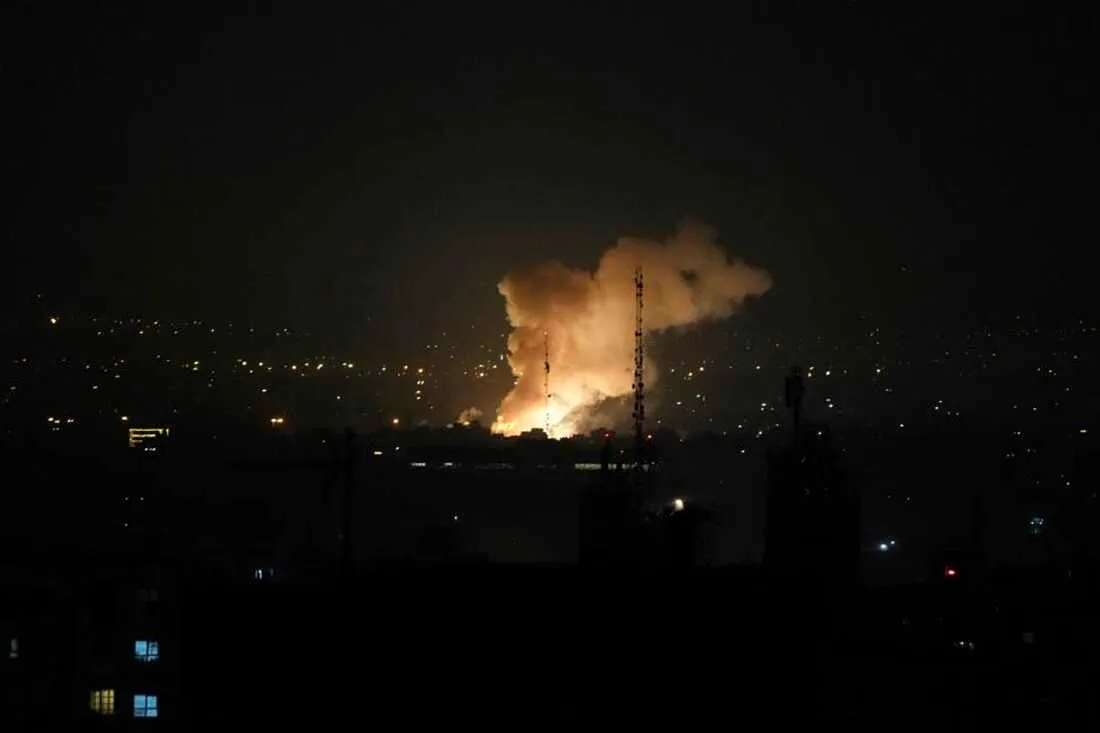TEHRAN/JERUSALEM — On Friday at dawn, the skies over Tehran were lit by explosions as Israel launched a series of “preemptive” airstrikes on Iranian nuclear and military facilities, sharply escalating tensions in the region and threatening US diplomatic efforts regarding the nuclear deal with Iran. Israeli Prime Minister Benjamin Netanyahu, announcing an operation titled “Rising Lion,” called the strikes necessary to “eliminate the existential threat” posed by Iran. In response, Iran promised “severe retaliation,” and the world held its breath, fearing an escalation that could engulf the entire Middle East.
“We struck the very heart of Iran’s nuclear program,” Netanyahu said in a video address released early Friday morning. “We attacked the main enrichment complex in Natanz, leading nuclear scientists, and Iran’s ballistic missile program.” According to him, the operation will take “as many days as necessary” to neutralize what he called a “clear and immediate threat to Israel’s survival.”
Iranian state television confirmed explosions in Tehran, reporting the death of several high-ranking officials, including IRGC Commander Major General Hossein Salami and two nuclear scientists, Fereydoun Abbasi and Mohammad Mehti Tehranchi. In a statement, Iran’s Supreme Leader Ayatollah Ali Khamenei condemned Israel for “criminal aggression,” promising “severe punishment.”
Escalation on the brink of war
The attack marked the culmination of years of hostility between Israel and Iran, which has intensified due to Tehran’s accelerating nuclear program. According to the International Atomic Energy Agency (IAEA), Iran recently refused to cooperate with inspectors, leading to a rare resolution of condemnation by the agency’s Board of Governors. Israel, which has long alleged that Iran is secretly developing nuclear weapons, cites intelligence indicating Tehran could produce a bomb “within months or even a year.”
The strikes on Natanz — a key uranium enrichment site — and military bases in Tehran caused chaos. Witnesses in Iran’s capital reported red skies, aircraft sounds, and sirens. Residential neighborhoods were damaged, and state media reported civilian casualties, including children. Iran closed its main Imam Khomeini Airport and activated its air defense systems.
In Israel, preparations for a possible response included declaring a state of emergency. Schools were closed, mass gatherings prohibited, and sirens sounded in Tel Aviv and Jerusalem. According to the IDF, Iran has already launched over 100 drones in response, and the country is preparing for missile strikes. “We expect a heavy attack but are ready to defend,” said Israeli Defense Minister Yoav Gallant.
Diplomacy under attack
The strikes dealt a blow to US President Donald Trump’s efforts to negotiate a new nuclear accord with Iran. Talks, scheduled for Sunday in Oman, had already been fragile due to US demands that Iran halt uranium enrichment entirely. Trump, who publicly expressed optimism about the deal on Thursday, insisted that Israel should refrain from attack. “We are close to an agreement,” he wrote on Truth Social. “Iran could become a great country, but first it must give up nuclear weapons.”
However, Netanyahu, skeptical of diplomacy with Iran, ignored Washington’s calls. Insiders in Jerusalem report that the prime minister sees a unique window of opportunity: Iran is weakened by sanctions, losing regional allies like Hezbollah and the Assad regime in Syria, and has recently suffered Israeli strikes against its military infrastructure. “Netanyahu believes now or never,” noted Israeli analyst Yossi Melman.
The US, while providing military support to Israel, distanced itself from the operation. Secretary of State Mark Rubio emphasized that the strikes were an “ unilateral action” by Israel and warned Iran against attacking American interests. “Our priority is to protect our forces in the region,” he said. According to Pentagon sources, the US recently evacuated some personnel from Iraq and other Central Command countries amid fears of escalation.
Regional tinderbox
The attack provoked sharp reactions across the region. Oman, acting as a mediator in US-Iran talks, accused Israel of “undermining regional security.” Iran’s Defense Minister Aziz Nasserzadeh stated that Tehran is prepared to attack US bases in the region if the US becomes involved. “All their bases are within our reach,” he said, raising the stakes in an already tense situation.
Experts warn that the strikes could trigger a wider conflict. “This is not just Israel vs. Iran,” said Jason Brodsky of United Against Nuclear Iran. “It could draw in Hezbollah, Houthi rebels, Iraq, and even Syria.” The strikes also increased domestic pressure on Netanyahu, who faces corruption charges and protests over the Gaza war. Some analysts believe the attack is partly aimed at diverting attention from internal issues.
What’s next?
As Tehran considers its response, global markets reacted with a sharp rise in oil prices — up 12% within hours of the strikes. In Washington, Congress is divided: Republicans like Senator Tom Cotton expressed support for Israel, whereas Democrats, including Senator Chris Murphy, called the attack a “disaster,” blaming Trump and Netanyahu for escalation.
For ordinary Iranians and Israelis hiding from sirens and explosions, the strikes serve as a stark reminder of the region’s fragility. “I saw the sky turn red,” recounts Mahtab, a resident of northern Tehran. “We’re afraid this is just the beginning.” In Tel Aviv, Israelis rushed to shelters, preparing for the worst.
As Israel and Iran stand on the brink of war and diplomacy hangs by a thread, one question remains unanswered: can the region avoid catastrophe, or will this “preemptive” strike ignite the Middle East into wider conflict?



